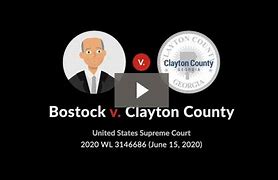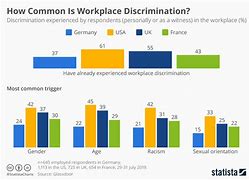Below is a review of the posts (on Facebook, LinkedIn, and Twitter) from the past week. You can check out the full posts by clicking on the links.

In the posts on Sunday 7/4/21, here, here and here, we celebrated Independence Day – a vacation day for many, a work day for others. We gave thanks for many things – see the post for the list.
TAKEAWAY: It is important to thank those who give us independence, be it in 1776 or now with COVID safety protocols.

mandatory vaccination policy
The post on Monday 7/5/21 gave us news: a federal court dismissed a mandatory vaccination lawsuit. Hopefully you are aware of the suit filed by 117 employees of Houston Methodist Hospital over its mandatory COVID vaccination policy. The suit included allegations of wrongful termination and violations of public policy – at least some of their arguments are noted in the post. The judge swiftly rejected one of their analogies, calling it “reprehensible”. The judge then dismissed the case with prejudice (meaning they cannot bring it again).
TAKEAWAY: This decision supports EEOC Guidance on vaccine mandates – but be aware of contrary state laws that may apply. Contact an employment lawyer to ensure that your policy passes legal muster (and can handle accommodation requests).

The post on Tuesday 7/6/21 made us aware that HOA/condo residents went weeks without trash pickup (and we asked who fault it was). Trash bins were filled up – they’d not been emptied in over a month. They overflowed and trash bags and more were on the streets. What was the root cause? According to the Association President … see the post.
TAKEAWAY: While associations often manage some services for residents, they are not in complete control of provision of those services.

after bostock?
The post on Wednesday 7/7/21 asked one year later: have employers taken stock following Bostock? Recall that the US Supreme Court’s decision in Bostock v Clayton County found that employment discrimination on the basis of sexual orientation or transgender status was illegal. The decision came out amid the COVID shutdowns, so many employers may not have given it much thought. Now, with reopenings, they must. The EEOC even has a new webpage with resources for employers – see the link in the post. There is also a fact sheet that notes legal protection for reverse discrimination against non-LGBTQ+ workers, consideration of customer/client preferences, and more as noted in the post in detail. The EEOC also has a fact sheet with notable litigation involving discrimination on the basis of sexual orientation and gender identity. A link to that is also in the post – and provides good tips for employers.
TAKEAWAY: If you have not already done so, ensure that your handbooks and policies (and other internal documents) are updated to reflect the Bostock holding and train your employees on how it plays out in the workplace.

In the post on Thursday 7/8/21 we learned about when a lengthy ADA leave constitutes an undue hardship. Ok, you know that when a request for accommodation under the ADA is made by an employee, the employer must start the interactive accommodation process. You also k now that the employer need not provide any accommodation that would be an undue hardship. The question is, what constitutes reasonable – and not an undue hardship – when it comes to a leave under the ADA? The answer should start to look at the leave when it occurs under the FMLA (which it should as the 2 often work in tandem). See how this initiation begins in the post. What is considered a reasonable leave varies around the country as federal courts have come to different conclusions – and many are very fact-dependent. One thing an employer should do in the fact of an extended ADA leave is obtain the medical documentation mentioned in the post. The employer should also freely assert how and why it believes any accommodation would be an undue hardship. Again, this is very fact-dependent and may be impacted by applicable state law too. See the post for an example. And certainly look to a possible middle ground if possible – some examples are listed in the post.
TAKEAWAY: Before taking adverse action, in this case terminating an employee who is unable to return to work because any accommodation would be an undue hardship, make sure all alternatives have been thoroughly reviewed and then discuss the matter with your employment lawyer.

over service dog
The post on Friday 7/9/21 told us that an HOA and a veteran will go to court over a service dog. You know the legal difference between a service dog and an emotional support animal, right? Here we are dealing with a service dog. Mark moved into the association in 2019; he used a service dog to move around the community. Then he received a letter from the HOA relative to a violation of rules regarding pets. Mark sent a detailed response – see the post. The HOA did not back down. Mark filed suit. Then the HOA came up with a different defense – see the post. If true, what the association is claiming in the suit would indeed be sufficient basis to require Mark to remove his service dog. Stay tuned; trial is currently set for August 27.
TAKEAWAY: Condo and homeowner associations can have pet rules; while service (and valid emotional support) dogs cannot be barred, they still have to follow the other rules.

Finally, in the post yesterday 7/10/21, we learned how to avoid age discrimination from creeping into your recruiting practices. This concerns older workers, those defined by federal law as being over 40. Discrimination against older employees appears rampant, but few of those against whom it is practices have made a formal complaint to their employer. What are some subtle things that might be deemed age discrimination? See the post (but note that they include being asked to include a graduation year). Ironically, or coincidentally, the 3 industries identified as having the most age discrimination are also one planning to expand now: financial services and 2 other industries mentioned in the post.
TAKEAWAY: The EEOC has age discrimination as one of its priorities, so make sure all recruitment practices and materials overcome any unconscious biases and ageist practices.

 York, Pennsylvania 17403
York, Pennsylvania 17403